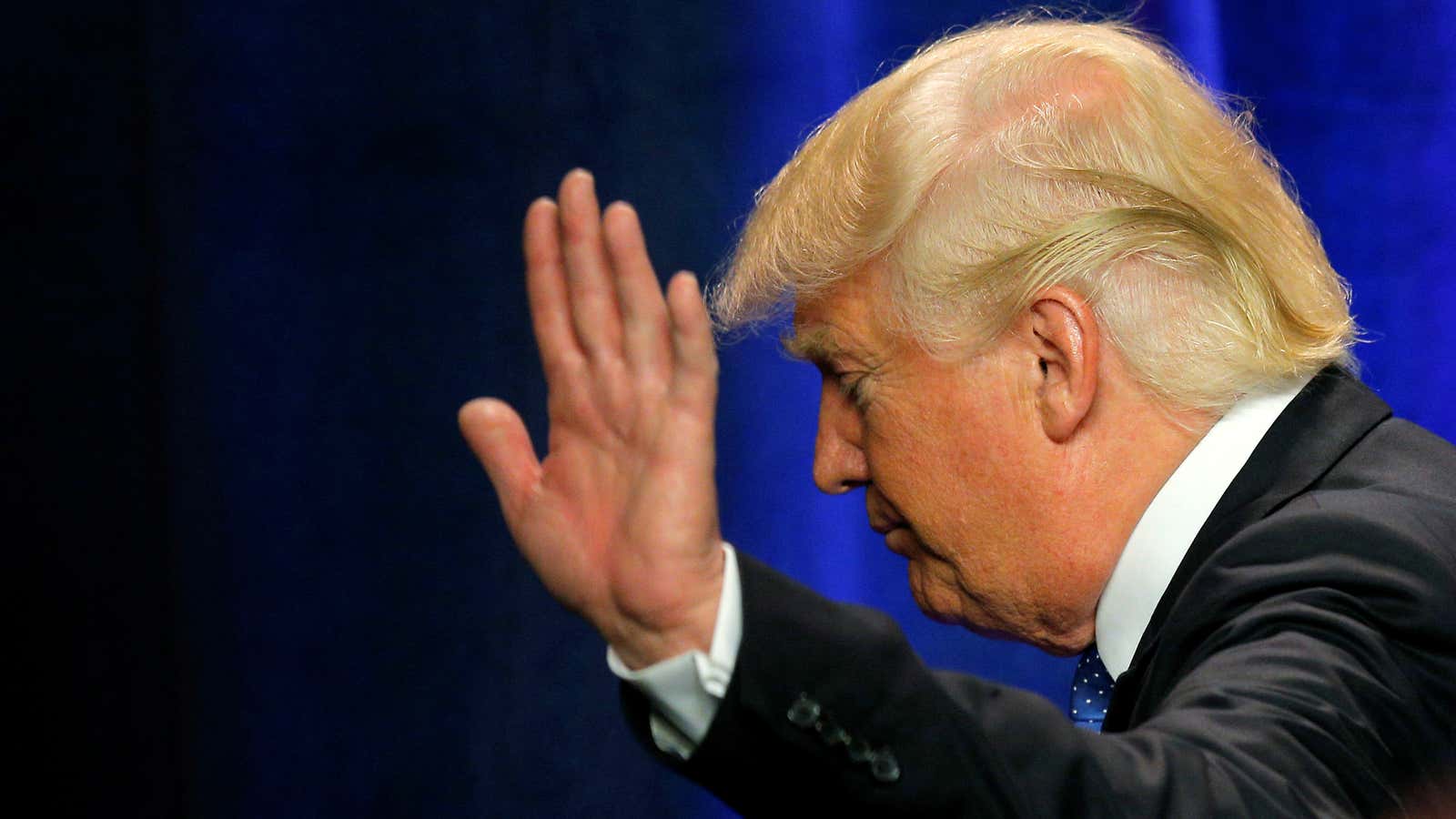Things aren’t looking up for Donald Trump. A band of his fellow party members have been drumming up support for their effort to scuttle his nomination. It appears to be working; Kendal Unruh, the Colorado delegate spearheading the plan, says she now has 400 delegates on board, reports the Washington Post.
But Trump probably has less to sweat about than the headlines suggest.
Derailing his nomination hinges on the rules that “bind” delegates to the Republican national convention in Cleveland to vote for Trump in accordance with their popular vote results, as we recently explained. To win the nomination, Trump must win a majority of the delegates (this year, 1,237). Trump should clear that hurdle with ease, having won more than 1,500 delegates—nearly all of which must vote for him because they’re bound to the results of their state’s popular vote.
However, the rules that govern how delegates can and can’t vote are determined just before each convention by the rules committee, which is made up of 112 delegates (two from each state or territory). A majority of delegates—this year, 1,237 of them—must then approve the rules at the beginning of the convention. In theory, a majority in both the rules committee and the convention floor could approve rules changes letting delegates vote for any candidate they want—or, as Unruh’s Free the Delegates movement puts it, to vote their conscience. Given that most delegates likely don’t actually support Trump, a challenger could then seize the nomination.
The 400 anti-Trump delegates that Unruh has amassed might sound like a groundswell of support. But passing sweeping rules changes is a lot harder to pull off than it sounds.
For one, the first crucial hurdle is persuading a majority of rules committee members to support their unbinding plan. Since only a dozen or so state Republican parties have publicized which of their delegates are on the rules committee—and only a few of those are talking to the press—it’s hard to know how representative Unruh and her supporters’ views are.
However, Solomon Yue, an Oregon delegate and member of the committee, says they simply don’t have enough votes—and are unlikely to get them.
Only one of the three anti-Trump factions—Yue calls them the pro-Cruz “renegades”—comes from the Republican grassroots. The other two, he says, are firmly part of the Republican establishment: the Washington GOP establishment clan, typified by Paul Ryan’s wishy-washy support of Trump, and the “Never Trump” group led by Mitt Romney, the 2012 Republican nominee. The problem for the anti-Trump camp is, resentment of that very establishment is what’s driving this election.
“This year is about anti-DC establishment for politics as usual and failure to deliver campaign promises,” says Yue. “Both Cruz and Trump delegates have one thing in common: [they’re] anti-DC establishment.”
Then there’s what must inevitably be sacrificed in the effort to unbind delegates, says Sandye Kading, a rules committee member from South Dakota.
“The efforts of a few should not negate the bylaws of the state parties nor the will of the primary voters,” she says.
As long as the price of dumping Trump is dumping state’s rights and democratic process, unbinding the delegates will be tougher to sell than its advocates make it sound.




